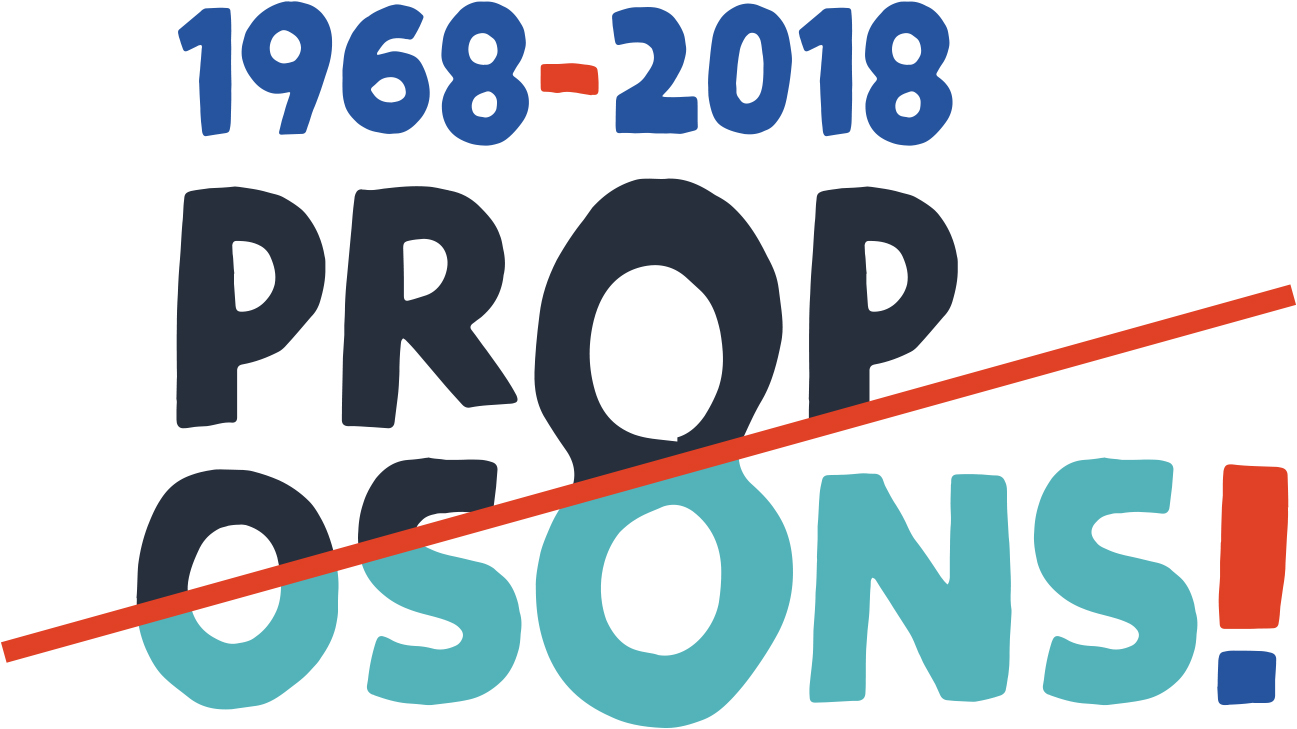Révolution et libération dans la fabrique d’un Royaume-Uni postcolonial – CRECIB
Responsable :
Mélanie Torrent (Paris Diderot)
Atelier II
Vendredi 8, 9h-10h30
Salle C12
9h
Lauriane Simony
Université Sorbonne Nouvelle – Paris 3 (CREW)
Le British Council dans la Birmanie indépendante : un outil de contre-révolution ?
Dès août 1947, quelques mois avant la déclaration d’indépendance officielle de la Birmanie, le Foreign Office britannique supervise l’ouverture d’un centre du British Council à Rangoun. En effet, le gouvernement britannique estime qu’il est essentiel aux intérêts britanniques de maintenir des liens culturels et linguistiques privilégiés avec la Birmanie. Si la charte royale du British Council insiste sur la dimension purement culturelle des activités de l’institution, les archives du Foreign Office et du British Council en Birmanie dans les années 1950 replacent au contraire l’organisation de promotion de la langue anglaise dans un cadre résolument politique. Perçu par les britanniques comme une institution stabilisatrice dans des régions en proie à des luttes internes, je souhaite ainsi montrer que le British Council devient un outil majeur de diplomatie culturelle en Birmanie, voire de propagande anti-communiste et anti-révolutionnaire.
9h20
Olivier Estèves
Université de Lille (CERAPS, UMR 8026)
Taking the Bullying by the Horn: Asian low-profile, post-coloniality and the emergence of resistance against bussing in Southall and Bradford
This paper seeks to examine the political and sociological dimensions of the emergence of a (largely) Asian movement to challenge immigrant children “dispersal” in the Local Education Authorities of Bradford and Ealing (Southall). Bussing / Dispersal was a system of forceful integration of “immigrant children” whereby mostly Asian pupils were sent to predominantly white schools in suburban or white working-class areas. It lasted from 1963 to 1981 (in Southall and Bradford), in Halifax (West-Yorkshire) it went on until 1986. However well-intentioned, bussing was a total failure. This paper seeks to explore several post-colonial dimensions of the Asian low-profile which informed some of the (belated) resistance movement against bussing. It is largely based on 32 interviews with formerly bussed pupils, on local archives and is drawn from chapter 6 of my forthcoming monograph: The ‘Desegregation’ of English Schools: Bussing, Race and Urban Space (Manchester University Press, autumn 2018).
9h40
Slimane Hargas
Université Paris 13 (PLEAIDE)
An anti-colonial revolution in a postcolonial world: Irish republicanism and the representation of the Troubles through the lens of the Algerian war of independence
During the Troubles, Irish republicans strove to depict Northern Ireland as the last British colony. At a time when decolonisation was all the rage, it was a political strategy to glean international support in favour of republican demands, namely independence and reunification. To make their arguments in favour of the colonial and postcolonial paradigms more sustainable, republicans relied on colonial analogies. It was in this context that Ireland was construed as ‘Britain’s Algeria’, much to the dismay of such scholars as Conor Cruise O’Brien (1971) and Hugh Roberts (1986). Based on the long series of articles devoted to the Algerian war of independence in Republican News during the 1970s and 1980s, this paper is going to deal with the influence of the Algerian revolution on Irish republicans, the relevance of the Algerian analogy during the Troubles and its contribution to the debates revolving around Ireland’s colonial history.
10h
Virginie Roiron
Institut d’Etudes politiques, Strasbourg (SAGE, UMR 7363)
Who’s calling the shots? The 1979 Lancaster House negotiations and the meaning of Zimbabwe’s independence
This paper proposes to explore the negotiations on the independence of Zimbabwe between the UK government and Zimbabwean nationalist movements at Lancaster House in 1979, as they deeply informed the post-independence relations between the two countries. Indeed, the issue of land redistribution, crucial though it may have been in a territory which had been governed by a White minority government since its creation, was somewhat neglected and dismissed by the British government as secondary in the political process towards independence. Far from being peaceful and consensual, the Lancaster House negotiations were the arena of a struggle between nationalist leaders and the British government as they symbolically fought to set the agenda on topics which they thought should inform the future independence of the country. Though the Lancaster House compromise ended up in the empowerment of nationalist leaders, it also reflected the British government’s own priorities in settling the Rhodesian issue.
10h20
Samuel Coombes
Université d’Edimbourg
La ‘Community Cohesion’ et le rejet du modèle multiculturaliste en Grande Bretagne : révolution ou régression ?
En 2011 le Premier ministre conservateur David Cameron, sur fond de campagne contre la montée de l’extrémisme islamiste, a déclaré que le ‘state multiculturalism’ avait échoué. Cette affirmation a mis fin officiellement à une politique gouvernementale qui a énoncé les principes directeurs en matière de ‘race relations’ en Grande Bretagne depuis les années 1970. En réalité la politique multiculturaliste avait été remise en question quelques années plus tôt ; toujours vivement critiquée par la droite traditionnaliste, à l’aube du nouveau millénaire il revenait à la gauche libérale d’identifier ses limites. La conception multiculturaliste a été remplacée dans le discours officiel par le nouveau concept de ‘community cohesion’. Dans cette communication, nous analyserons ce moment de transition où une conception d’une société multiraciale et multiculturelle est venu en remplacer une autre. On s’interrogera sur la portée de la ‘community cohesion’ : amorce-t-elle une évolution réelle dans les rapports intercommunautaires ou s’agit-il d’un discours politique plutôt creux ?
10h40-11h
Discussion
Appel à contributions
Révolution et libération dans la fabrique d’un Royaume-Uni postcolonial : espaces, pratiques et limites
Les indépendances au 20ème siècle ne furent que très rarement une révolution totale, attendue par certains, redoutée par d’autres, dans les métropoles européennes comme dans les colonies où se construisaient alors les nouveaux Etats ‘postcoloniaux’. Les travaux sur les liens théoriques et pratiques entre révolution et décolonisation ont ainsi souligné la survivance des conceptions, pratiques et langages coloniaux dans les cultures politiques et économiques comme dans les échanges internationaux. Fondamentale à la compréhension de ces phénomènes, et à la possibilité d’une libération plus grande, est l’étude de la violence physique et symbolique comme moyen de domination et de contestation, et l’analyse des héritages coloniaux dans les systèmes contemporains d’autorité et de maintien de l’ordre. La fin de l’empire britannique n’a pas été le processus largement négocié et pacifié qui a longtemps dominé le discours politique et historiographique – et que certains continuent de privilégier. Mais la violence au cœur des luttes de libération n’a pas toujours été animée par des idées, des méthodes et des objectifs révolutionnaires, et s’est trouvée également confrontée à des modèles de révolution non-violente, dont les dynamiques locales et transnationales restent un champ d’investigation riche.
Pour réévaluer les relations entre révolution, libération et décolonisation, cet atelier propose de réexaminer l’émergence de pratiques postcoloniales au Royaume-Uni, réfléchissant aux acteurs, structures et chronologies, et de s’intéresser à la place du Royaume-Uni comme terrain de luttes révolutionnaires, croisant approches locales et transnationales. On pourra notamment s’intéresser aux questions suivantes :
– influence et héritages des révolutions (américaine, française et haïtienne, russe et chinoise, entre autres) dans les mouvements nationalistes et anticolonialistes, et dans les résistances à ces mouvements
– tensions entre violence, non-violence et pacifisme (conceptions et mises en pratique) dans la lutte pour l’émancipation coloniale
– liens entre les révolutions politiques et d’autres révolutions (sociales, culturelles, technologiques …) dans les mouvements de libération et les processus de décolonisation
– impact des pratiques coloniales sur le contrôle de la population au Royaume-Uni (politiques sécuritaires, migratoires, médico-sociales…) avant et après la fin officielle de l’empire
– héritage des indépendances (dans leurs succès et limites) dans les relations internationales du Royaume-Uni et de ses anciennes colonies (de l’aide au développement aux politiques culturelles et à la redistribution des terres… )
Les propositions de communication, en anglais ou en français, accompagnées d’une courte bio-biobliographie, sont à envoyer à Mélanie Torrent avant le 15 janvier 2018.
Revolution and liberation in the making of a postcolonial United Kingdom : spaces, practices and limits
Independences in the 20th century were rarely a total revolution, which some had hoped for and others had feared, in the European metropoles and the colonies where the new ‘postcolonial’ states were being built. Research on the theoretical and practical links between revolution and decolonisation have thus shown the persistence of colonial conceptions, practices and languages in political and economic cultures, as well as international exchanges. Essential to the understanding of these phenomena, and to the possibility of a more total liberation, is the study of violence, both physical and symbolic, as a means of domination and contestation, and the analysis of colonial legacies in the contemporary systems of authority and order. The end of the British empire was not the largely negotiated and pacified progress which long dominated political and historiographical discourse – and which some still favour. But the violence at the heart of the liberation struggles was not always moved by revolutionary ideas, methods and objectives, and was also confronted by models of non-violent revolution, whose local and transnational dynamics remain a very rich field of investigation.
In order to reassess relations between revolution, liberation and decolonisation, this workshop will revisit the emergence of postcolonial practices in the United Kingdom, reflecting on actors, structures and timelines, and discuss the place of the United Kingdom as a terrain for revolutionary struggles, connecting local and transnational approaches. The following questions, among others, can be investigated:
– The influence and legacies of revolutions (American, French, Haitian, Russian and Chinese, among others) on nationalist and anticolonial movements, and on the resistance to such movements
– Tensions between violence, non-violence and pacifism (conceptions and practices) in the fight for colonial emancipation
– The connections between political and other revolutions (social, cultural, technological…) in liberation movements and decolonisation processes
– The impact of colonial practices on population control in the United Kingdom (security, migration, socio-medical policies …), before and after the official end of empire
– The legacy of independences (in their successes and limits) in the international relations of the United Kingdom and its former colonies (from development aid to cultural policies and land redistribution…)
Please send an abstract and a short bio-bibliography, in French or English, to Mélanie Torrent by 15 January 2018.



